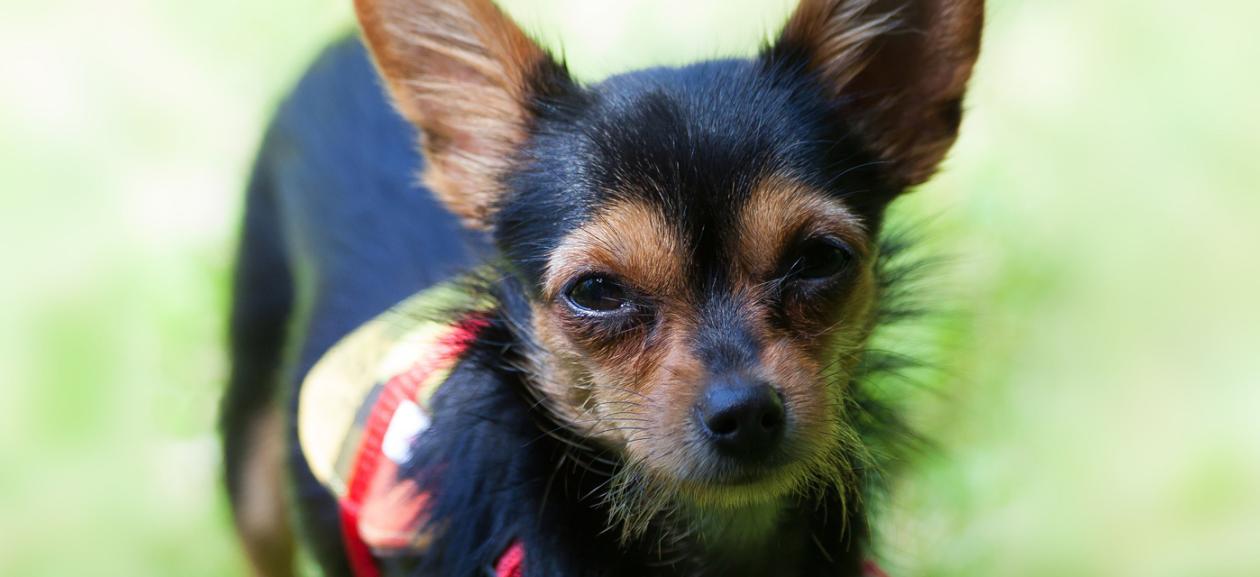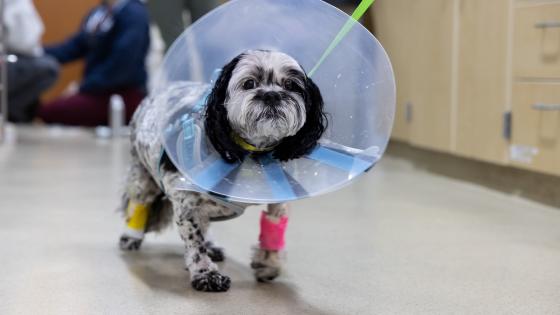
How Many Pet Poisons are in Your Home?
Every room of your house is filled with items that could be poisonous to your furry friends. Keep your pets safe by restricting access to the toxic items below.
Food and Drink
CHOCOLATE
Cocoa and chocolate contain theobromine, a chemical that can affect heart rhythm and cause vomiting, diarrhea and seizures if ingested by pets.
ALCOHOL
Even in small doses, alcohol can cause drunken behavior, trouble breathing or cardiac arrest.
GRAPES & RAISINS
Just a handful of grapes or raisins can damage your dog’s kidneys or even prove deadly. Even small amounts in trail mix or snack boxes can be dangerous.
COFFEE & TEA
Coffee, tea, energy drinks, dietary pills or anything else containing caffeine should never be given to your pet, as they can affect the heart, stomach, intestines and nervous system.
DOUGH
Unbaked dough that contains yeast can expand and release gases in your dog’s stomach or intestines, resulting in nausea, vomiting, diarrhea and even life-threatening bloat and twisted stomach. Some yeast dough also ferments into alcohol, which can cause alcohol toxicity.
SWEETENERS
Many sugarless gums and candies contain xylitol, a sweetener that is acutely toxic to dogs. Ingestion can cause vomiting, weakness, a life-threatening drop in blood sugar, loss of muscle control, seizures and liver failure.
ONIONS & GARLIC
Large amounts of onions and garlic in any form – even powdered – can endanger your pet’s health. Effects can range from mild gastrointestinal upset to severe anemia.
Decorative Items
ORNAMENTAL PLANTS
Pet owners should be aware that many ornamental plants including sago palms, poinsettias, lilies, narcissus, mistletoe and holly are harmful to pets.
FRAGRANCE PRODUCTS
Liquid potpourri and simmer pots can be enticing to pets. Avoid using them or keep them safely out of reach. Aerosols and other heavily fragranced products can harm caged birds and other caged animals.
Human Medications
SLEEP AIDS
These drugs can cause agitation, severe lethargy, lack of coordination and slowed breathing (e.g., Klonopin, Ambien, Lunesta).
ANTIDEPRESSANTS
Ingestion can cause dangerously elevated heart rate and body temperature, as well as life-threatening tremors and seizures (e.g., Zoloft, Cymbalta, Effexor, Lexapro).
PAIN RELIEVERS
Just one pill can cause serious stomach and intestinal ulcers, kidney failure, liver damage and red blood cell injury (e.g., Advil, Aleve, Motrin, Tylenol).
Narcotics
MARIJUANA
Most commonly, dogs eat foods containing marijuana or the dried plant by itself. When those foods also contain chocolate, the risk of additional poisoning is increased. It’s extremely rare for pets to ingest enough marijuana to cause death, although they may still need medical treatment to recover from poisoning.
Chemicals
CLEANING PRODUCTS
Various cleaning products have different levels of toxicity, so it’s best to keep all products securely out of reach. Even some “natural” products can cause harm.
FERTILIZER
Lawn fertilizer may contain a mix of phosphorus, nitrogen and chemicals for insect and weed problems. Cocoa mulch combines the dangers of fertilizer and chocolate.
ANTIFREEZE
During the summer, cars are more likely to overheat and may leak antifreeze – the bright green liquid found oozing from a car. Antifreeze tastes sweet and may be inviting to pets, but it is highly toxic even in very small amounts.
SNAIL POISON
This pesticide can cause whole body twitching, tremors and weakness within one hour of ingestion, and progress to full seizures and brain damage. Other symptoms include salivation, increased heart rate, vomiting and diarrhea.
RAT POISON
Toxins used to eliminate rats may cause spontaneous bleeding three to five days after ingestion. It can result in weakness, loss of coordination, depression and anorexia even before bleeding occurs.
OTHER PESTICIDES AND RODENTICIDES
All poisons used to rid homes, lawns or gardens from unwanted critters are harmful to pets. Symptoms can range from vomiting to death.
Additional Tips for Poison Prevention:
- Store cleaning agents, pesticides, automotive products, and other dangerous chemicals in areas that are inaccessible to your pets.
- Keep garbage cans behind closed doors. Many animals get sick from sneaking into the waste bin.
- Never give your pet medication, especially human medication, unless directed to do so by a veterinarian. Human medications can be deadly for animals.
- Dispose old medications in a trash or container that animals cannot access.
- Read all labels prior to using any products in your home. Always follow the directions for safety.
- Do not use cat products for dogs and vice versa.
- Do not allow pets on lawns or gardens treated with fertilizers, herbicides or insecticides until the products have dried completely. Always store these products away from pet areas.
- Ask the manufacturer or your veterinarian if you are uncertain about the use of any product.
Download this flyer and post it in your home to remind you and your family to keep these potential hazards away from pets.
Recent Posts
Marijuana Toxicity in Pets: What You Need to Know
As availability of marijuana increases in the Portland area since legalization, so have the number of marijuana toxicity cases treated at DoveLewis. Our doctors warn pet owners of the potential risks to their dogs and cats if marijuana is ingested in any form.
How to Build a Pet First Aid Kit
Every pet owner should have a pet first aid kit handy in case of an emergency. If you need to put one together, we’ve got you covered!



